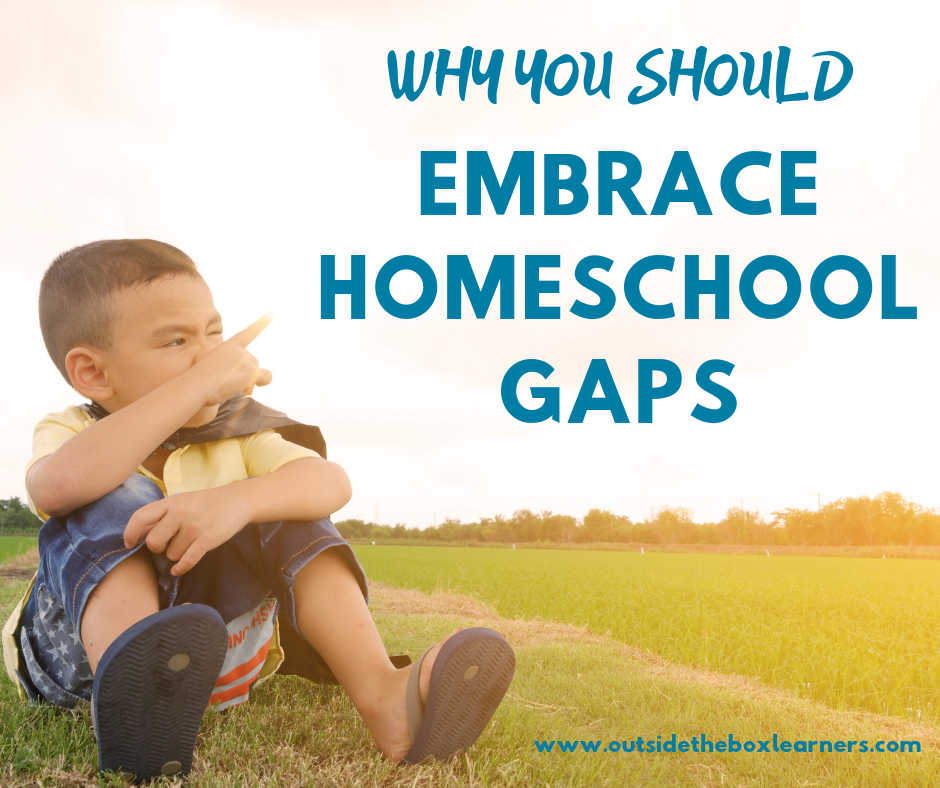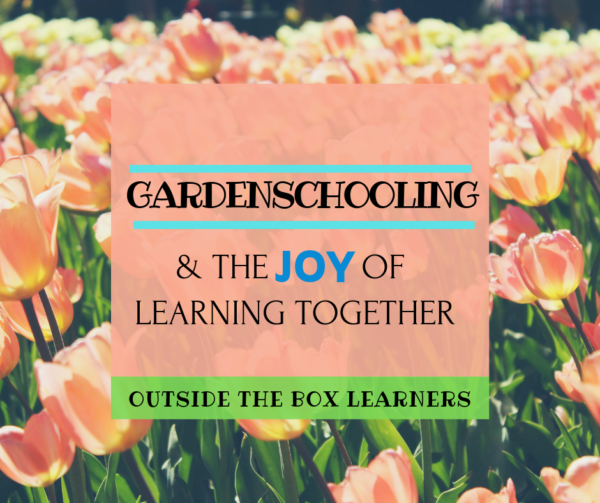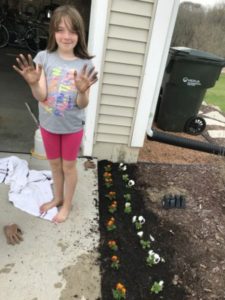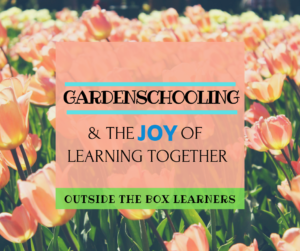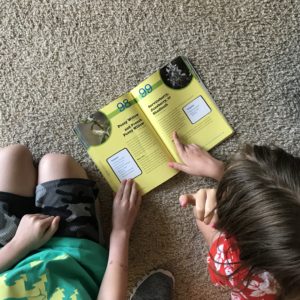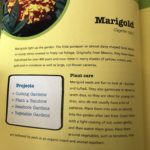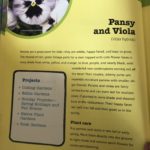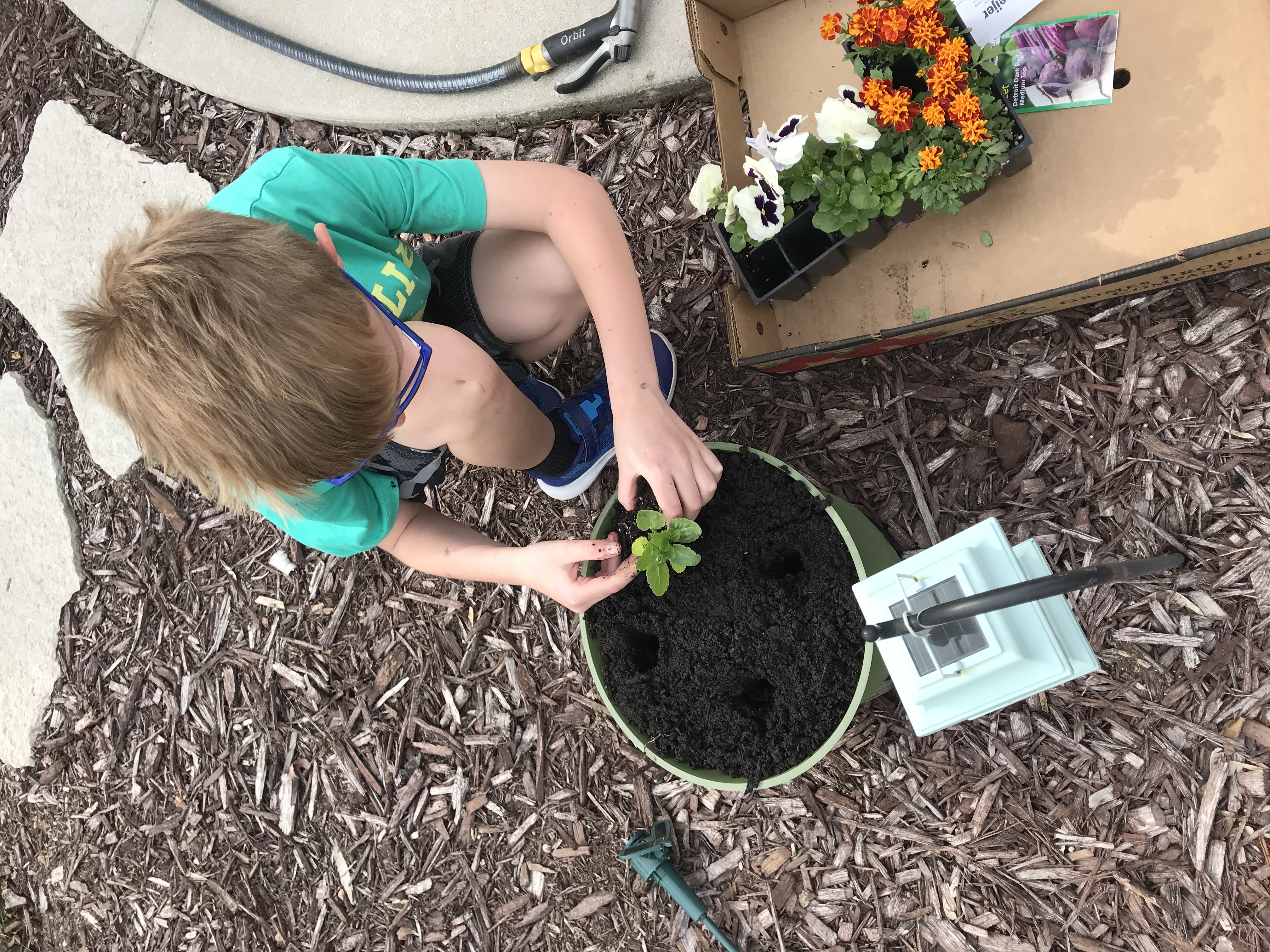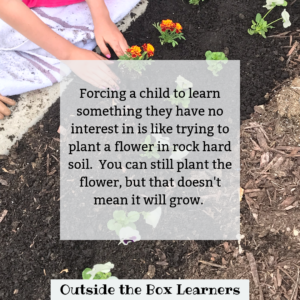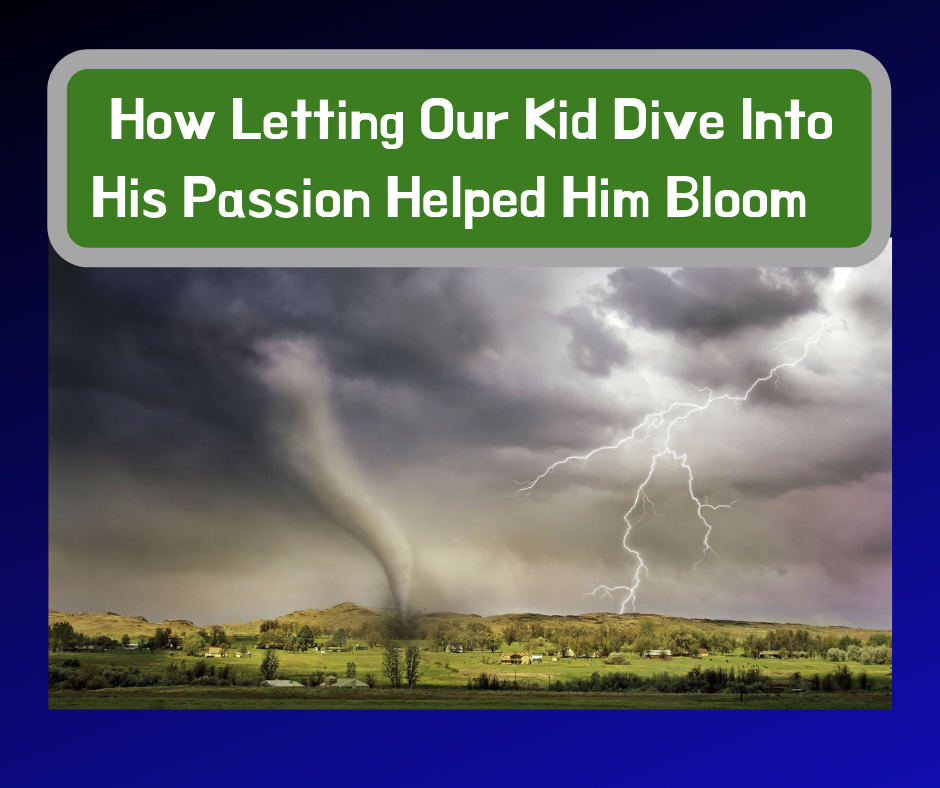In the UK they have a common phrase that’s heard when people are stepping onto the train platform. “Mind the gap.” The “gap” refers to the space between the platform and the train. And one should be careful to step over it and not into it. Cuz, yikes, that wouldn’t be good!

Gaps are scary.
And not just literal gaps, but figurative gaps, you know like… *ahem* education gaps. Or let’s get more personal. HOMESCHOOLING gaps.
As a new homeschooler, one of my main goals was making sure we would NOT have education gaps. In fact, that was THE motivating factor in me buying an all in one boxed curriculum for our first two years. The idea of gaps made me tremble in my boots.
Nevermind that there was very little joy using the boxed curriculum. It was my safety net. It meant that I was doing things right and we were going to cover all our bases.
I often wish I could go back to my first year of homeschooling, and start a little bit differently, a little bit more gently, listening to the interests of my kiddo more.
This blog post contains affiliate links and any purchases made through these links will result in a small commission for me (at no cost to you!)
Gaps have continued to haunt me over the years.
And I know I’m not alone! Right?
This past year was really the first year that I’ve begun to accept that gaps are inevitable AND that they are OK, and *GASP* even to be embraced!
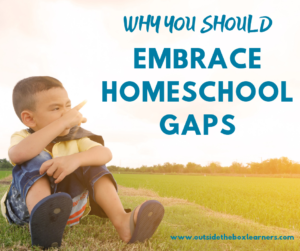
In his book, Passion-Driven Education Connor Boyack states this obvious yet important truth:
“Not every person needs to know the same things, let alone all things.”
Every education includes gaps.
A big “a-ha” moment for me was when I truly considered how all educations have gaps.
Think about this… Did you learn everything you needed to know for life in school, or have you had to learn things “on the fly”?
Guess what? When you taught yourself something new, you were filling in a gap!
Public school. Private school. Charter school. Homeschool.
You name it. There are gaps.
There is beauty in the gaps.
Gaps mean our kiddos are spending a good chunk of time studying their interests, rather than only filling their minds with information the curriculum or standards deem important. Or worse yet, learning something ONLY because it’s going to be on a standardized test.
Gaps mean our kids are growing in skills that they are excited about, and may possibly pursue a career in someday.
Children are more likely to retain information when they’re curious in a subject matter.
And if we’re so busy dotting all of our i’s and crossing our t’s, we’re missing out on those curious moments, and guess what, those are gaps too! And in my opinion, those gaps are much more grievous.
If we spend our days trying to “mind the gap” in our kid’s education, there may not be time or energy left for them to dive into their interests.
So rather than “minding the gap”, maybe we should keep in mind our child’s interests in our homeschool environment.
Education is not the filling of a bucket but the lighting of a fire.

